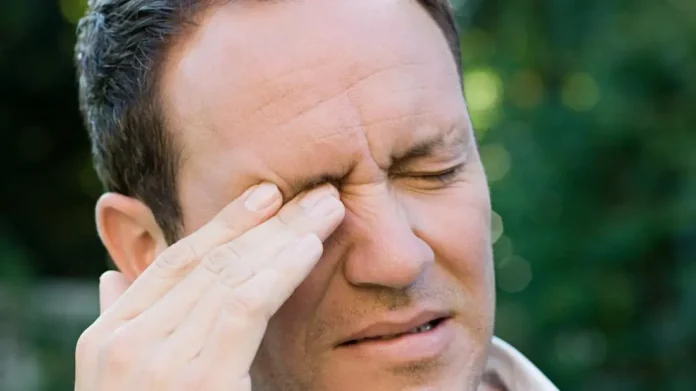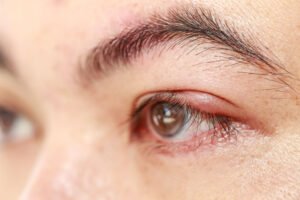
Tips for reducing eye swelling: Eye swelling, also known as periorbital puffiness, can be a common and bothersome issue. It can be caused by various factors, including allergies, lack of sleep, crying, or an underlying medical condition. Fortunately, there are several simple yet effective tips that can help reduce eye swelling and provide relief. In this article, we will discuss some actionable tips to help alleviate eye swelling and restore your eyes to their natural state.
Read this also: The Incredible Health Benefits of Imli (Tamarind)
Know these tips for reducing eye swelling

1. Apply Cold Compresses
Cold compresses are an excellent way to reduce eye swelling. Place a clean cloth soaked in ice-cold water or a cold gel eye mask on your closed eyelids for about 10-15 minutes. The cold temperature helps constrict blood vessels, reducing inflammation and swelling around the eyes. Repeat this process several times throughout the day for optimal results.
2. Cucumber Slices
Cucumbers have anti-inflammatory properties and can provide relief for eye swelling. Slice a fresh cucumber into thick slices, refrigerate them for a few minutes, and then place them over your closed eyes for 10-15 minutes. The coolness of the cucumber helps soothe the area and reduce swelling. Moreover, cucumbers have refreshing qualities that can help relax and rejuvenate tired eyes.
3. Get Sufficient Sleep
Lack of sleep is a major contributor to eye swelling. Ensure you are getting an adequate amount of sleep each night, ideally between 7-9 hours. Resting your eyes and allowing them to recover overnight can significantly reduce puffiness and swelling. Elevate your head with an extra pillow to prevent fluid from pooling around the eyes, which can contribute to swelling.
4. Avoid Allergens
If your eye swelling is caused by allergies, it is essential to identify and avoid allergens that trigger this reaction. Common allergens include dust, pollen, pet dander, and certain foods. Keep your living environment clean by regularly dusting and vacuuming, and try to minimize exposure to potential allergens. If necessary, consult with an allergist for appropriate allergy management strategies.
5. Stay Hydrated
Dehydration can exacerbate eye swelling. Drink an adequate amount of water each day to maintain proper hydration levels. Staying hydrated helps flush out toxins from your body and reduces water retention, preventing fluid accumulation around the eyes.
6. Limit Sodium Intake
Excessive sodium consumption can lead to water retention, causing swelling around the eyes. Minimize your intake of processed foods, which tend to be high in sodium, and opt for fresh, whole foods instead. Be mindful of adding salt to your meals and consider using alternative seasonings to enhance flavor.
7. Practice Eye Massage
Lightly massaging the area around the eyes can help reduce swelling. Gently tap your fingers around the orbital bone and apply gentle pressure in an upward motion. This can stimulate lymphatic drainage and improve blood circulation, reducing puffiness.
Eye swelling can be uncomfortable and affect your appearance. By following these simple yet effective tips, you can minimize eye swelling and promote a more rested and refreshed look. Remember to address the underlying causes, such as allergies or lack of sleep, and incorporate these techniques into your daily routine for long-lasting relief. However, if your eye swelling persists or worsens, it is advisable to consult with a healthcare professional for further evaluation and guidance.



